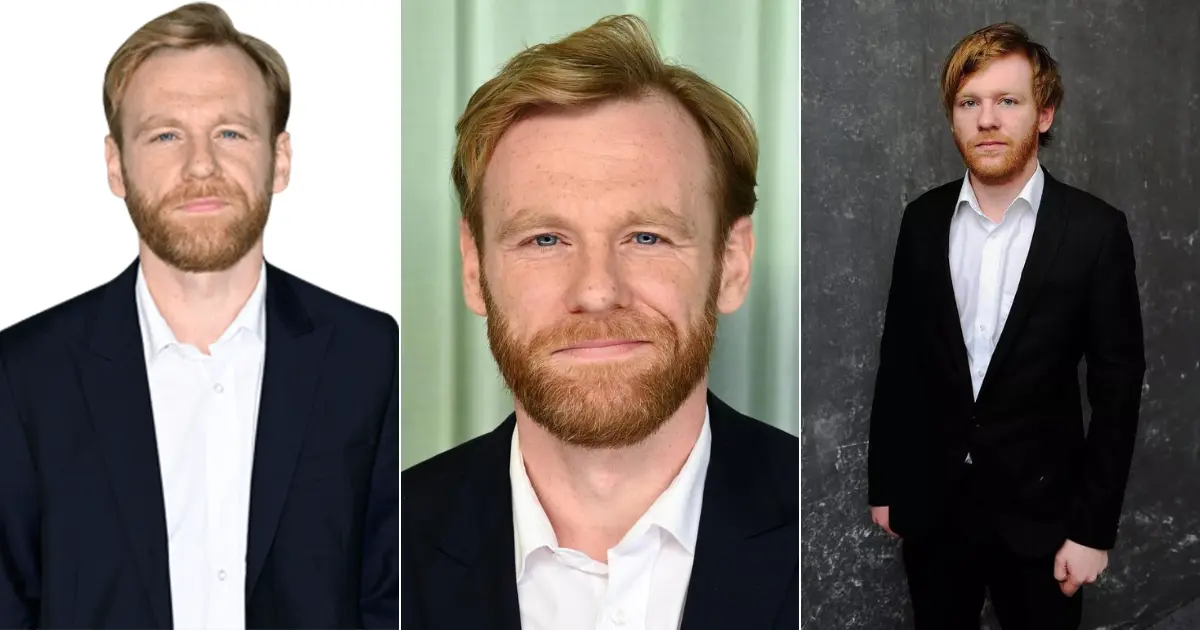Brian Gleeson is a name that sparks various emotions among movie and television audiences. While many admire his acting prowess, others harbor a strong dislike for him.
But what drives this divide? Understanding why some people hold negative views about Brian Gleeson requires delving into his career, public persona, and the broader context of celebrity culture. In this comprehensive article, we will explore the factors contributing to the negative sentiment surrounding Brian Gleeson.
The Rise of Brian Gleeson: A Brief Overview
Brian Gleeson, born into a family of actors, naturally gravitated toward the performing arts. His father, Brendan Gleeson, and brother, Domhnall Gleeson, are both renowned actors, which set high expectations for Brian from the start. Brian began his acting career with small roles, gradually earning recognition for his talent.
Notable Roles and Accomplishments
Brian Gleeson’s portfolio includes a variety of roles in both film and television. He has appeared in popular shows like “Love/Hate” and movies such as “Phantom Thread” and “Assassin’s Creed.” Despite his growing list of credits, his popularity has not reached the heights of his father and brother, leading to a mixed reception from the audience.
Why Do People Hate Brian Gleeson?
The question, “Why do people hate Brian Gleeson?” is multifaceted. Several factors contribute to the negative sentiment towards him, including his acting style, the roles he chooses, and public perception of his off-screen persona.
Acting Style: A Matter of Personal Taste
Brian Gleeson’s acting style is often described as subtle and understated. While some viewers appreciate this approach, others find it unengaging or lackluster. The following table highlights the contrasting opinions on his acting style:
| Positive Opinions | Negative Opinions |
|---|---|
| Subtle and nuanced | Lack of charisma |
| Realistic performances | Monotonous delivery |
| Understated approach | Unmemorable roles |
Role Selection: A Double-Edged Sword
Gleeson’s choice of roles has also been a point of contention. He tends to gravitate towards complex, often dark characters, which may not appeal to a broad audience. While these roles showcase his range, they might not endear him to those who prefer more mainstream entertainment.
Why Role Selection Matters
Role selection can significantly impact an actor’s popularity. When an actor consistently chooses roles that align with specific themes or genres, it can create a niche following but may alienate a wider audience.
Role Selection Impact on Popularity
| Role Type | Potential Audience Reaction |
|---|---|
| Dark, complex characters | Polarizing, niche appeal |
| Mainstream, commercial roles | Broader audience appeal, safer choice |
| Unconventional, experimental | Cult following, limited mainstream |
Public Persona and Media Perception
In today’s celebrity-driven culture, an actor’s public persona plays a crucial role in shaping public opinion. Brian Gleeson tends to maintain a low profile, which some interpret as aloofness or lack of engagement with fans.
Media’s Role in Shaping Perceptions
The media plays a significant role in shaping public perceptions of celebrities. In Brian Gleeson’s case, limited media coverage and few high-profile interviews have contributed to a sense of mystery, which can be both a blessing and a curse.
Comparing Brian Gleeson with His Family
Comparisons with his father, Brendan Gleeson, and brother, Domhnall Gleeson, are inevitable. Both have achieved significant success and critical acclaim, which sets a high bar for Brian. The comparisons often lead to unfair expectations and criticism.
Gleeson Family Career Comparisons
| Actor | Notable Works | Public Reception |
|---|---|---|
| Brendan Gleeson | “In Bruges,” “Calvary” | Highly acclaimed, beloved by audiences |
| Domhnall Gleeson | “Ex Machina,” “Star Wars” | Popular, widely recognized |
| Brian Gleeson | “Love/Hate,” “Phantom Thread” | Mixed reception, overshadowed by family |
Conclusion
The negative sentiment towards Brian Gleeson is a complex issue, rooted in personal taste, role selection, and public perception. His understated acting style and choice of roles have polarized audiences, while comparisons with his more famous family members further complicate public opinion. Understanding why people hold negative views about Brian Gleeson requires considering these various factors and recognizing that opinions on art and performance are inherently subjective.
Brian Gleeson’s career is a testament to the diversity of opinions that actors face. While some admire his work, others are less impressed. As he continues to take on new roles and challenge himself, it will be interesting to see how public perception evolves. Ultimately, whether one likes or dislikes Brian Gleeson, his contributions to the film and television industry are undeniable, and his career will likely continue to spark discussion among audiences.
FAQs
Why do people dislike Brian Gleeson?
People’s dislike for Brian Gleeson often stems from his understated acting style, which some find unengaging. Additionally, his choice of dark, complex roles and comparisons with his more famous family members contribute to the negative sentiment.
Is Brian Gleeson a bad actor?
Opinions on Brian Gleeson’s acting are subjective. While some appreciate his subtle performances, others may not find his style appealing. His acting has been praised in certain circles but may not resonate with all audiences.
How does Brian Gleeson compare to his family?
Brian Gleeson is often compared to his father, Brendan Gleeson, and brother, Domhnall Gleeson. While his family members have achieved widespread acclaim, Brian’s career has followed a different path, leading to mixed public reception.
What are Brian Gleeson’s most controversial roles?
Brian Gleeson has played several roles that sparked debate among audiences, including his performances in “Love/Hate” and “Phantom Thread.” These roles, often dark and complex, have contributed to the polarizing opinions about him.
Does Brian Gleeson have a low public profile?
Yes, Brian Gleeson maintains a relatively low public profile, rarely engaging in high-profile interviews or media appearances. This contributes to a perception of aloofness, which may affect public opinion.
